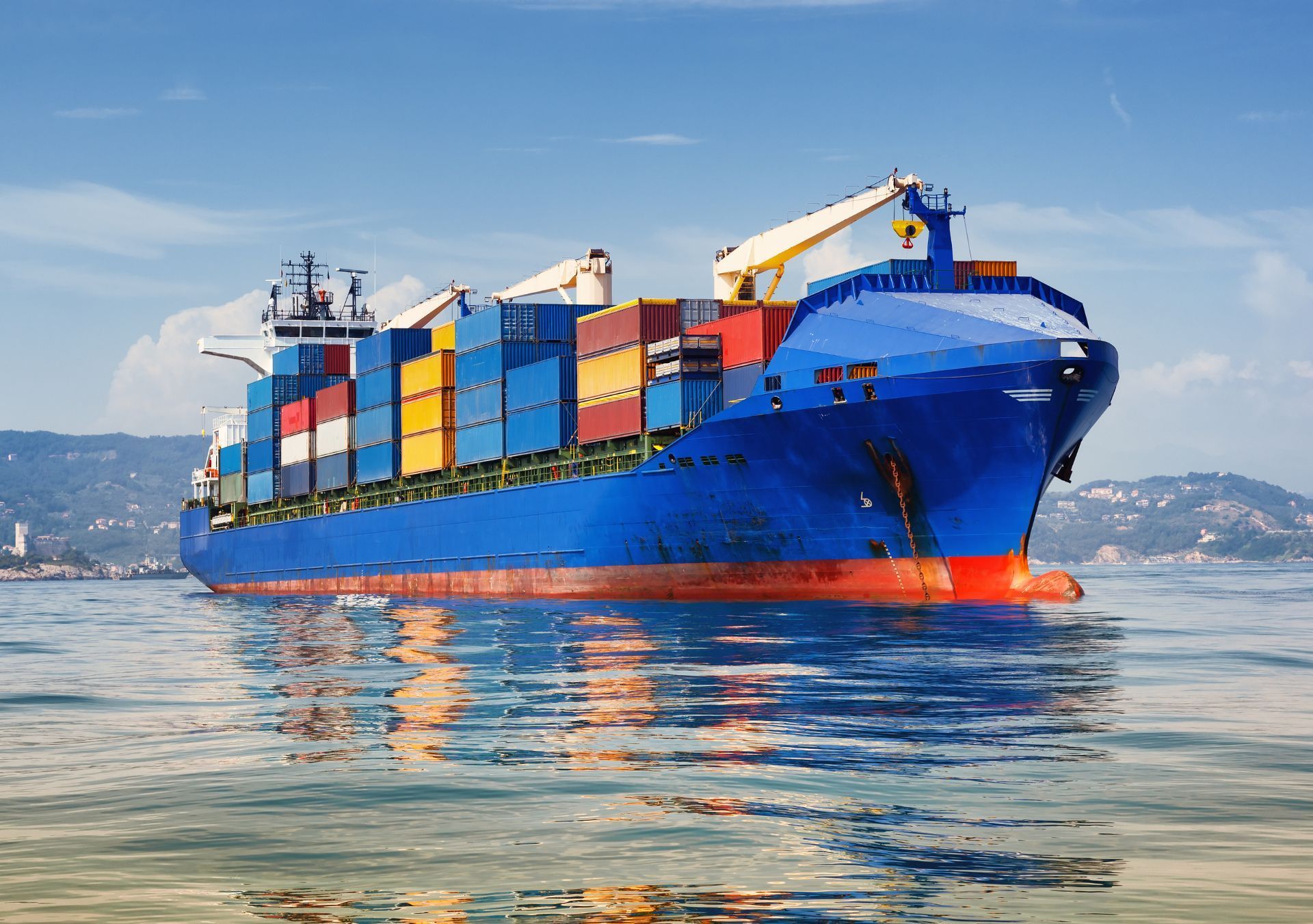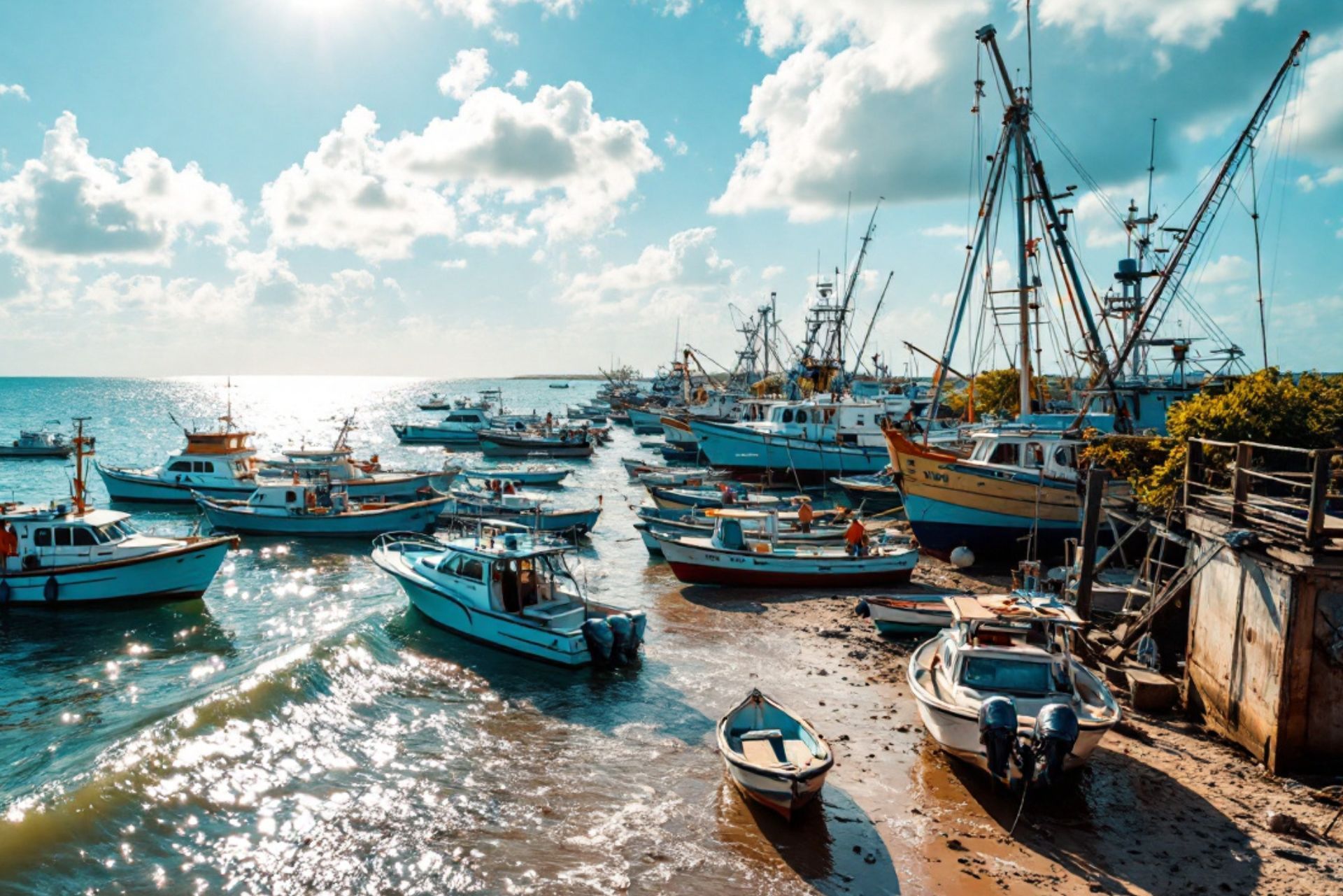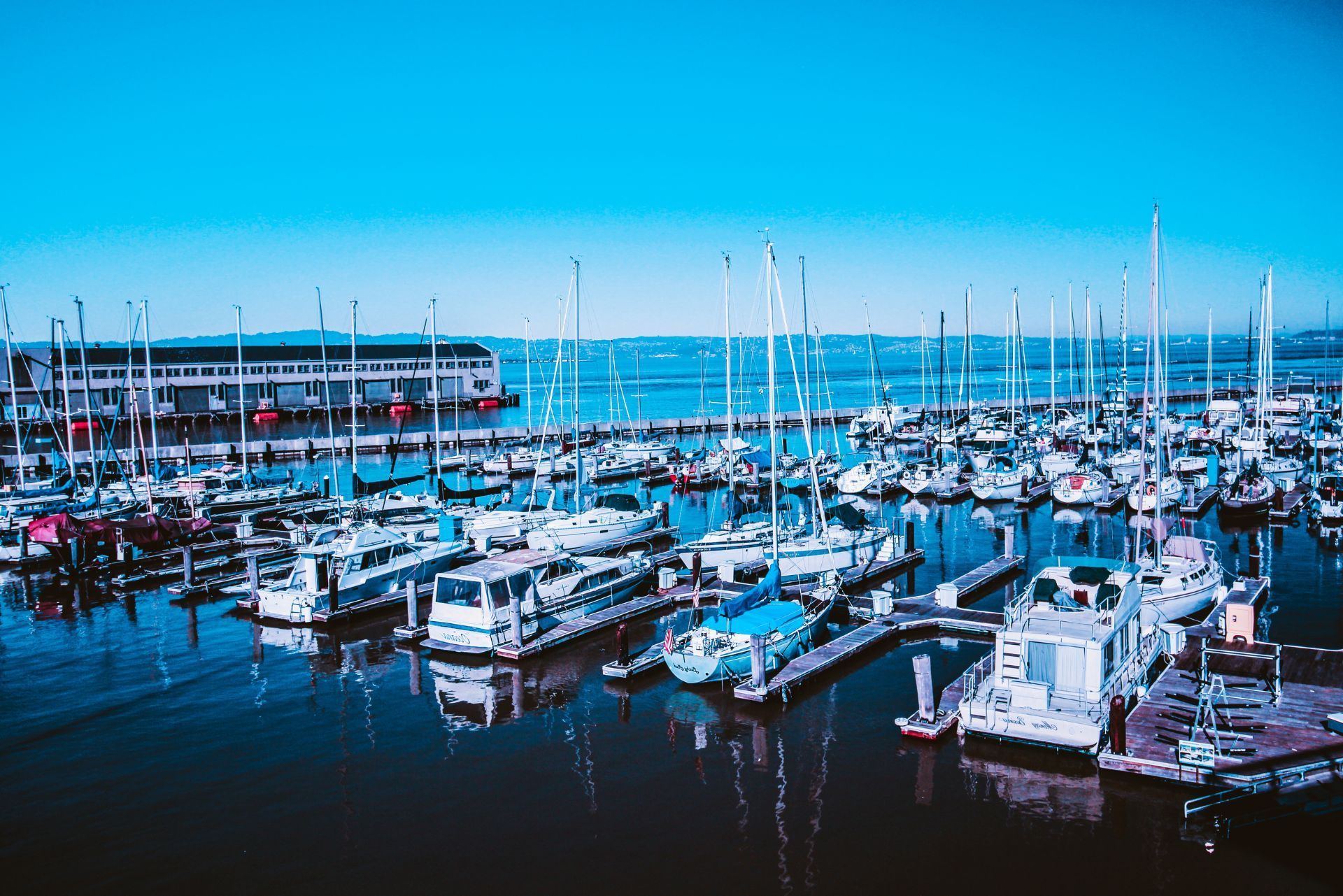
We're an independent insurance agency in Texas
Our experienced team offers services for both residential and commercial properties.With over 25 years of experience in the industry.
Contact Us
6600 Lyndon B Johnson Fwy Ste 220, Dallas, TX 75240, United States
(214) 253-0570
quotes@thephoenixinsurance.com
Working Hrs : 9.30am to 5.30pm

Most Common Business Policies
Index
Contact Us
Marine insurance is essential in safeguarding your assets while navigating the vast waters of the ocean. In Texas, a state with a significant coastline and thriving maritime industry, understanding ocean marine insurance can be crucial for individuals and businesses operating in this domain. This guide aims to provide comprehensive insights into ocean marine insurance, covering its fundamentals, types, costs, and much more.
Understanding Ocean Marine Insurance
Ocean marine insurance serves as a form of coverage designed to protect vessels and their cargo from various risks associated with maritime activities. It is pivotal for shipowners, cargo shippers, and ports, helping manage the inherent dangers that come with ocean transportation. Given Texas's expansive coastline, awareness of such insurance is particularly pertinent.
The Basics of Ocean Marine Insurance
At its core, ocean marine insurance encompasses a wide range of risks. These may include damages to vessels due to storms, collisions, theft, and liabilities for injuries to third parties. Policies can be customized based on the specific needs of the insured party, ensuring adequate protection for both cargo and vessel.
For many, the complexity of marine insurance can be daunting. Therefore, understanding the key terms, coverage options, and exclusions is paramount. Policies may vary drastically, so knowing what to expect can prevent unforeseen challenges. Additionally, the nuances of marine insurance often require specialized knowledge, which is why many businesses seek the guidance of experienced brokers who can navigate the intricacies of the policies and help tailor them to specific operational needs.
Importance of Ocean Marine Insurance in Texas
Texas has one of the busiest maritime sectors in the United States, with major ports like Houston and Galveston facilitating international trade. The significance of ocean marine insurance in this environment cannot be overstated. A solid insurance policy can mitigate losses arising from accidents, ensuring businesses remain operational even after incidents.
The insurance also fosters confidence among stakeholders, including businesses and clients, by showcasing a commitment to risk management. Moreover, it upholds the regulatory standards required for operating in this space while enhancing overall maritime safety in Texas's coastal waters. The diverse range of industries that rely on maritime transport, from oil and gas to agriculture, underscores the necessity of having robust insurance coverage. In a state where the economy is heavily influenced by maritime activities, the implications of inadequate insurance can be severe, leading to financial instability and operational disruptions for businesses that depend on the sea for their livelihood.
Furthermore, the unique environmental challenges faced by Texas, such as hurricanes and heavy storms, further amplify the need for comprehensive ocean marine insurance. These natural events can wreak havoc on shipping schedules and cargo integrity, making it essential for companies to have policies that not only cover physical damage but also address business interruption losses. As the climate continues to change, the maritime industry must adapt, and having a reliable insurance plan becomes an integral part of strategic risk management for businesses operating in this dynamic environment.

Types of Ocean Marine Insurance
There are several types of ocean marine insurance, each catering to different aspects of maritime operations. Understanding the varied coverage options will empower both shipowners and freight operators to make informed decisions.
Hull Insurance
Hull insurance provides coverage for physical damages to a vessel. This includes annihilation due to accidents, leaks, or natural calamities. Since vessels represent substantial investments, hull insurance is vital for owners, ensuring they are compensated for repairs or total losses.
Policyholders can choose between agreed value policies and market value policies. The agreed value policies payout a predetermined amount agreed upon when the insurance is underwritten, while market value policies adjust based on the vessel's current market conditions. Additionally, hull insurance may also encompass coverage for machinery and equipment onboard, which can be crucial for the operational efficiency of the vessel. Owners should carefully assess their specific needs and the potential risks associated with their vessels to select the most suitable policy.
Cargo Insurance
Cargo insurance protects the owner's goods being transported by sea. It covers damages or losses incurred during transit due to various causes, such as theft, fire, or rough waters. For Texas businesses that trade internationally, robust cargo insurance is essential.
Cargo insurance can come with limitations, so understanding what is and isn’t covered is crucial. Policies may vary in terms of coverage types, including "All Risk" coverage or "Named Perils" coverage, each managing risk differently. Furthermore, cargo insurance may also include provisions for delay coverage, which can be particularly beneficial for businesses that rely on timely delivery. In an increasingly globalized economy, having a comprehensive understanding of cargo insurance can help businesses mitigate risks associated with international shipping and ensure smooth operations.
Marine Liability Insurance
Marine liability insurance covers the insured’s liability for damages to third parties or their property due to maritime activities. This may include compensation for injuries sustained by crew or passengers, as well as damages caused to other vessels.
For maritime operators, this type of insurance is crucial for safeguarding against potentially debilitating financial claims arising from accidents or incidents, ensuring a degree of financial security in the face of litigation. Additionally, marine liability insurance can also extend to cover pollution liabilities, which have become increasingly important in light of stringent environmental regulations. With the maritime industry facing growing scrutiny over its environmental impact, having comprehensive liability coverage can protect operators from hefty fines and legal repercussions, thus allowing them to focus on their core business operations without the looming threat of unexpected liabilities.
How to Choose the Right Ocean Marine Insurance
OChoosing the right ocean marine insurance requires careful consideration and assessment of specific needs. Here are some guidelines to help navigate this process effectively.
Assessing Your Insurance Needs
The first step in selecting the appropriate insurance is an honest assessment of your maritime operations. Consider the types of goods you transport, how far you travel, and possible risks encountered on the journey.
Factors such as the nature of the cargo, route, vessel condition, and operational history can influence the required coverage levels. By doing so, you can better customize your insurance package to suit your needs. Additionally, consider the potential impact of geopolitical factors, such as piracy in certain regions or changes in international trade regulations, which could affect your shipping routes and cargo safety. Understanding these nuances can provide a more comprehensive view of your risk exposure and help in selecting the right coverage.
Comparing Insurance Providers
Once you know your insurance requirements, begin comparing different providers. Look for insurers with a solid reputation and experience in the marine insurance field. Consult reviews and seek recommendations from industry peers to find trustworthy options.
Evaluate the policies they offer, the conditions, and the associated premium costs. Gathering multiple quotes will ensure you find competitive rates while ensuring adequate coverage. It’s also wise to inquire about the insurer's claims process and their history of settling claims promptly and fairly. A provider that is known for excellent customer service and support can make a significant difference when you need to file a claim, especially in the often stressful aftermath of a maritime incident.
Understanding Insurance Policies
Before finalizing any agreement, thoroughly examine the policy details. Understand the terms, provisions, exclusions, and conditions laid out in every document.
Clarify any ambiguities with the insurance provider and ensure you are aware of what circumstances might negate coverage. This helps avoid unpleasant surprises during the claims process. Moreover, consider the importance of endorsements or additional coverage options that can be added to your policy. For instance, coverage for environmental liability or protection against loss of income due to shipping delays can be crucial for businesses heavily reliant on maritime logistics. Understanding these elements will empower you to make informed decisions that align with your operational needs and risk management strategy.
The Cost of Ocean Marine Insurance in Texas
The cost of ocean marine insurance can vary widely based on multiple factors. Understanding these elements can help you anticipate expenses and budget more effectively.
Factors Influencing Insurance Premiums
Several variables influence the cost of marine insurance premiums, including the type of coverage selected, the nature of the goods, the vessel's age, the operating region, and the insurance provider’s assessment of risk. Additionally, previous claims history and the overall reputation of the insured can also affect costs significantly.
For instance, a ship that frequently operates in high-risk areas will likely face higher premiums than one operating in calmer waters. Therefore, it is beneficial to assess risk factors critically and engage in transparent discussions with insurers. The type of cargo being transported also plays a crucial role; high-value items or hazardous materials may incur additional costs due to the increased risk of loss or damage. Furthermore, the vessel's maintenance history and safety features can influence the insurer's perception of risk, potentially leading to lower premiums for well-maintained ships equipped with advanced safety technology.
Ways to Reduce Your Insurance Costs
Reducing insurance costs while maintaining sufficient coverage can be achieved through several strategies. Consider bundling policies with one provider, as many offer discounts for multiple types of coverage.
Additionally, implementing risk management practices, such as regular vessel maintenance and staff training, can also contribute to reduced premiums. Always ask providers about available discounts or programs that reward safe operational practices. Another effective strategy is to increase your deductible; while this means you will pay more out-of-pocket in the event of a claim, it can significantly lower your premium costs. Moreover, participating in industry associations or safety programs can provide access to additional resources and potential discounts, as insurers often recognize the commitment to safety and risk mitigation demonstrated by such involvement.

Claims and Compensation in Ocean Marine Insurance
Understanding the claims process in ocean marine insurance is essential for getting compensated appropriately when incidents arise. This process can be intricate but is manageable with the right knowledge. The nature of marine operations often involves significant risks, from cargo damage to vessel loss, making it crucial for policyholders to be well-versed in their rights and responsibilities.
How to File a Claim
Filing a claim typically begins with notifying your insurance provider about the incident promptly. Ensure you document all necessary details, including photographs, statements, and receipts related to the loss or damage. This documentation serves as vital evidence that can substantiate your claim and facilitate a smoother process. Additionally, keeping a detailed log of events leading up to the incident can provide context that may be beneficial during the review.
Your insurer will then guide you through the steps required to complete the claim process. Be sure to follow their instructions meticulously to avoid any delays. It's also advisable to familiarize yourself with your policy's specific requirements, as different insurers may have varying protocols. Engaging with your insurance agent early on can provide clarity and help you gather all necessary information efficiently.
Understanding the Compensation Process
The compensation process involves the insurer assessing the claim’s legitimacy and determining the payment amount based on the policy terms. This period can vary widely, so maintaining open communication with your insurer can help speed up proceedings. Insurers often conduct thorough investigations, which may include site visits or consultations with marine surveyors to evaluate the extent of the damage and the cause of the incident.
In cases of disputes regarding claims, policyholders should be prepared to provide substantial evidence supporting their position. It's also beneficial to consult legal assistance to navigate any complex issues that may occur. Understanding the nuances of maritime law can be crucial, as it governs many aspects of ocean marine insurance. Furthermore, being aware of the potential for arbitration or mediation can offer alternative pathways to resolve disputes without resorting to lengthy litigation, which can be both time-consuming and costly.
Legal Aspects of Ocean Marine Insurance in Texas
Navigating the legal landscape surrounding ocean marine insurance in Texas is vital for all stakeholders in maritime activities. The laws governing these insurance policies are specific and often complex.
State Regulations and Requirements
Texas implements particular regulations governing marine insurance, which can vary based on the type of coverage. It’s essential for individuals and businesses to familiarize themselves with relevant state laws concerning marine insurance obligations.
Ensuring compliance with these regulations can mitigate potential legal issues and create a more secure operational environment on the waters. For instance, Texas law mandates that marine insurers must be licensed to operate within the state, and they are required to adhere to specific financial and reporting standards. This regulatory framework not only protects consumers but also fosters a competitive market where reputable insurers can thrive. Additionally, understanding the nuances of federal maritime law, which can intersect with state regulations, is crucial for stakeholders engaged in interstate or international shipping.
Legal Rights and Responsibilities of the Insured
Understanding your rights as an insured party is crucial for leveraging marine insurance effectively. This includes the right to fair compensation, clear communication during policy discussions, and the timely processing of claims.
Insured parties also have responsibilities, such as providing accurate information to their insurers and maintaining safety measures to prevent loss or damage. Awareness of these rights and responsibilities can enhance the working relationship between insurers and insured. Furthermore, the insured must be proactive in documenting their maritime activities, as thorough records can be invaluable during the claims process. This documentation may include logs of vessel maintenance, cargo manifests, and communication with crew members. By being diligent in these practices, insured parties can not only fulfill their obligations but also strengthen their position in the event of a dispute, ensuring that they are adequately protected under their marine insurance policies.
Future Trends in Ocean Marine Insurance
The field of ocean marine insurance is continually evolving, influenced by various external factors. Keeping an eye on these trends can help individuals and businesses stay ahead.
Impact of Climate Change on Insurance
Climate change is profoundly affecting maritime operations worldwide, including in Texas. Increased frequency of severe weather events poses heightened risks for vessels and cargo, leading to a reevaluation of risk assessments by insurers.
As the industry adapts, marine insurance policies may see changes in coverage and premiums. Insurers will be challenged to offer competitive yet adequate policies that reflect the ongoing environmental transformation.
Technological Innovations in Marine Insurance
Technological advancements are reshaping various industries, and marine insurance is no exception. Innovations such as data analytics, artificial intelligence, and blockchain technology are gradually being integrated into underwriting and claims processes.
These technologies promise to enhance operational efficiency and improve customer experiences. By monitoring risks in real-time and streamlining claims handling, marine insurance can become more robust and user-friendly in the years to come.
In conclusion, understanding ocean marine insurance is crucial for navigating the complexities of maritime operations, especially in a state like Texas. From recognizing the types of coverage available to becoming aware of the costs and legal implications, every aspect plays a vital role in ensuring maritime success.

